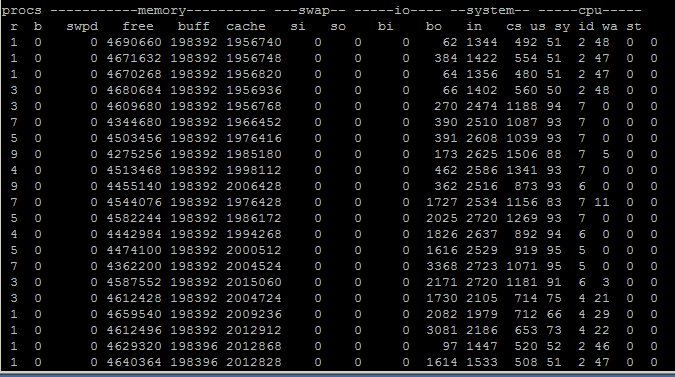Recently I’ve been scratching my head over a particular performance issue with Linux VMs hosted on VMWare vSphere. Everything seemed to move at a glacial pace.
vmstat gave a few clues as to what was happening, although depending on what I read it still wasn’t clear:
It became apparent that I was suffering from some kind of queuing problem. I wasn’t sure if it was CPU or disk related. I came across this post which has a lot of good performance tuning guides.This tip caught my eye:
7. Set your disk scheduling algorithm to ‘noop’
The Linux kernel has different ways to schedule disk I/O, using schedulers like deadline, cfq, and noop. The ‘noop’ — No Op — scheduler does nothing to optimize disk I/O. So why is this a good thing? Because ESX is also doing I/O optimization and queuing! It’s better for a guest OS to just hand over all the I/O requests to the hypervisor to sort out than to try optimizing them itself and potentially defeating the more global optimizations.
You can change the kernel’s disk scheduler at boot time by appending:
elevator=noop
to the kernel parameters in /etc/grub.conf.
Sure enough, I modified /boot/grub/grub.conf on my Centos 6 boxes and appended elevator=noop to the kernel line, then rebooted. It helped a lot! Performance no longer was pitiful. I’m not nearly as familiar with vmware as I am with Xenserver so this was a good hint.
